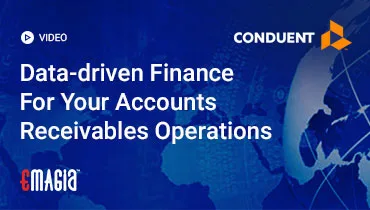Introduction: The Dawn of Generative AI in the Accounting Landscape
The accounting profession has always evolved with technology, from ledgers to spreadsheets, and from enterprise resource planning (ERP) systems to Robotic Process Automation (RPA). Today, we stand at the precipice of another monumental shift with the rise of Generative AI in Accounting. This isn’t just about automating existing tasks; it’s about empowering accounting professionals with capabilities previously unimaginable, fundamentally reshaping the industry.
Unlike traditional AI, which primarily analyzes existing data or automates repetitive tasks, Generative AI (GenAI) has the unique ability to *create* new content, insights, and solutions. This transformative power is already making waves across various sectors, and its applications in finance and accounting are set to redefine how businesses manage their financial health. From producing detailed reports to generating sophisticated financial forecasts, AI in accounting is transitioning from a supporting tool to a strategic partner.
This article will provide a comprehensive exploration of Generative AI in Accounting, detailing what it is, its profound Generative AI use cases accounting, the tangible benefits of Generative AI accounting, and the crucial challenges of Generative AI accounting that must be addressed for successful adoption. We will also cast a gaze into the future of accounting with AI, envisioning the evolving role of finance professionals in this AI-powered accounting era.
What is Generative AI in Accounting? Defining the Transformative Technology
At its core, Generative AI in accounting refers to the application of artificial intelligence models capable of generating new data, insights, or content, rather than merely classifying or predicting based on existing data. This distinction is vital for understanding its impact on finance.
Generative AI vs. Traditional AI: A Fundamental Difference
Traditional AI in Accounting: Focuses on automating repetitive tasks (like data entry, invoice processing, reconciliation) and analyzing existing datasets to identify patterns or anomalies (e.g., fraud detection). It’s about efficiency and insights from *what is already there*.
Generative AI in Accounting: Goes a step further. Powered primarily by Large Language Models (LLMs) and other generative models, it can *create* new outputs. This means drafting financial narratives, simulating financial scenarios, generating code for models, or even synthesizing compliance reports. It’s about creation and dynamic response.
The capability of Generative AI to understand context, generate human-like text, and interact conversationally is what makes it so revolutionary for roles traditionally reliant on human judgment and creativity.
Key Use Cases of Generative AI in Accounting and Finance: Practical Applications
The practical applications of Generative AI in finance and accounting are vast and growing. They span from automating mundane tasks to providing deep strategic insights.
1. Automating Routine Accounting Tasks with Generative AI
One of the most immediate impacts of Generative AI in Accounting is its ability to take over highly repetitive, time-consuming tasks, thereby freeing up human capital for more strategic work.
- Enhanced Data Entry and Extraction: GenAI can intelligently extract data from unstructured documents like invoices, bank statements, receipts, and contracts, regardless of format. It goes beyond OCR by understanding context, drastically improving accounting automation with AI for initial data capture.
- Automated Reconciliation Processes: While traditional automation handles simple reconciliations, GenAI can analyze complex discrepancies across multiple accounts, suggest reasons for variances, and even propose journal entries to resolve them, streamlining bank and intercompany reconciliations.
- Document Processing and Summarization: Accountants often deal with lengthy legal documents, financial statements, and contracts. GenAI can quickly summarize key clauses, extract relevant financial metrics, or identify anomalies, accelerating due diligence and review processes.
2. Enhancing Financial Analysis and Forecasting with AI
AI for financial analysis moves beyond historical reporting to predictive and prescriptive insights, with Generative AI playing a crucial role.
- Generating Dynamic Financial Reports and Narratives: GenAI can automatically compile financial data from various sources and generate comprehensive reports, including explanatory narratives and variance analyses, tailoring them to specific stakeholders. This significantly enhances AI for financial reporting.
- Predictive Modeling for Cash Flow, Revenue, and Expenses: By analyzing vast historical and real-time data, GenAI can generate highly accurate financial forecasting with AI, providing more dynamic and reliable projections than traditional methods.
- Scenario Planning and ‘What-If’ Analysis: GenAI can simulate various economic conditions or business decisions, generating detailed financial outcomes and helping management understand potential impacts on profitability and liquidity.
3. Revolutionizing Audit and Compliance with Generative AI
The meticulous nature of audit and compliance stands to gain immensely from Generative AI in Accounting, enhancing both efficiency and accuracy.
- Automated Document Review and Anomaly Detection for Audits: GenAI can rapidly review thousands of transactions, contracts, and internal policies, identifying potential risks, inconsistencies, or unusual patterns that warrant further investigation by human auditors. This is pivotal for audit automation AI.
- Compliance Monitoring and Regulatory Reporting Generation: GenAI can continuously monitor changes in tax laws and financial regulations, assess a company’s compliance posture, and even assist in generating required regulatory filings and audit trails, strengthening internal controls.
- Fraud Detection AI Accounting: By analyzing vast datasets of transactions, GenAI can identify subtle anomalies and patterns indicative of fraudulent activities in real-time, significantly improving the precision and speed of fraud detection AI accounting.
4. Strategic Tax Optimization with Generative AI
Generative AI in accounting is poised to streamline complex tax processes and unlock new optimization opportunities.
- Automating Tax Research and Identifying Deductions/Credits: GenAI can quickly sift through massive volumes of tax codes and case law to provide precise answers to complex tax questions, helping identify applicable deductions and credits tailored to specific scenarios. This advances tax automation AI.
- Assisting with Tax Return Preparation: By extracting and analyzing data from various financial documents, GenAI can significantly reduce the time and effort required to prepare accurate tax returns for individuals and corporations.
5. Improving Communication and Advisory Services with GenAI
Beyond internal efficiencies, Generative AI in accounting enhances the outward-facing aspects of the profession, particularly client communication and advisory services.
- Drafting Financial Summaries and Client Communications: GenAI can draft clear, concise summaries of financial performance, explanations of complex accounting treatments, or personalized client updates, saving professionals valuable time.
- Personalized Financial Insights and Advisory Support: Accountants can leverage GenAI to analyze client financial data and industry trends to generate tailored advice, simulate different financial strategies for clients, and offer high-value consulting services. This moves accountants into more strategic accounting with AI.
Benefits of Implementing Generative AI in Accounting Operations
The adoption of Generative AI in accounting promises a multitude of tangible benefits that extend beyond mere automation, truly transforming financial operations.
- Increased Efficiency and Productivity: By automating highly repetitive and data-intensive tasks, GenAI frees up accounting professionals to focus on higher-value activities, leading to significant productivity gains.
- Enhanced Accuracy and Reduced Errors: GenAI’s ability to process vast amounts of data and learn from patterns minimizes human errors in data entry, reconciliation, and reporting, leading to cleaner financial records.
- Deeper Insights and Smarter Decision-Making: GenAI’s capacity to analyze disparate data points and generate new perspectives provides richer, more nuanced AI-driven insights, empowering finance leaders to make better-informed strategic decisions.
- Cost Optimization and Resource Reallocation: Reduced manual effort translates directly into lower operational costs. Resources previously tied to transactional work can be reallocated to strategic analysis, client advisory, or business development.
- Scalability and Adaptability: GenAI solutions can scale rapidly to handle increasing data volumes and complex tasks, adapting quickly to changing business needs or regulatory environments without proportional increases in human effort.
- Improved Employee Satisfaction: By removing the drudgery of mundane tasks, AI-powered accounting allows professionals to engage in more stimulating, analytical, and strategic work, enhancing job satisfaction and retention.
Challenges and Considerations for Generative AI Adoption in Accounting
Despite its immense potential, implementing Generative AI in Accounting is not without its hurdles. Organizations must address these challenges proactively for successful and ethical adoption.
- Data Quality and Privacy: GenAI models are only as good as the data they’re trained on. Poor data quality can lead to inaccurate or biased outputs. Moreover, handling sensitive financial data with external GenAI models raises significant data privacy AI accounting concerns and security risks.
- Ethical Concerns and Bias in AI: GenAI models can inadvertently learn biases present in their training data, potentially leading to unfair or discriminatory financial decisions. Ensuring AI ethics accounting and fairness is paramount.
- “Black Box” Problem and Explainability: The complex nature of some GenAI models can make it difficult to understand how they arrive at their conclusions (the “black box” problem). This lack of transparency poses challenges for auditability and regulatory compliance, where explanations are often required.
- Integration with Existing Systems: Seamless integration of new GenAI solutions with legacy ERP systems, accounting software, and other financial tools can be complex and require significant IT investment.
- Talent Gap and Upskilling Requirements: The accounting workforce needs to develop new skills, including data literacy, AI proficiency, and critical thinking to interpret and validate GenAI outputs. The future of accounting with AI demands continuous learning.
- Over-reliance and Human Oversight: There’s a risk of over-reliance on AI-generated outputs without sufficient human oversight and critical evaluation, potentially leading to unchecked errors or missed nuances. Accountants must remain in control.
- Evolving Regulatory Landscape: Regulations around AI usage, data governance, and accountability are still developing, creating uncertainty for firms implementing GenAI tools.
The Future Role of Accountants in an AI-Powered World
The advent of Generative AI in Accounting will not replace accountants entirely but will fundamentally redefine their roles. The future accountant will shift from a transactional processor to a strategic advisor and interpreter.
- From Data Processors to Strategic Advisors: Accountants will spend less time on data entry and reconciliation and more time on high-level analysis, strategic planning, risk management, and providing valuable insights to clients and management. This is the essence of strategic accounting with AI.
- Focus on Interpretation, Validation, and Advisory: The new role emphasizes understanding AI outputs, validating their accuracy, challenging assumptions, and translating complex AI-driven insights into actionable business strategies.
- The Accountant as an “AI Orchestrator”: Future accountants will increasingly manage and optimize AI tools, design prompts for generative models, and interpret the nuances of AI-generated content.
- Enhanced Collaboration and Communication: With automated tasks, accountants will have more time for cross-functional collaboration within the organization and deeper engagement with clients.
Emagia’s Leadership in AI-Powered Financial Operations: A Partner for Generative AI in Accounting
As the landscape of finance and accounting rapidly evolves with Generative AI, Emagia stands at the forefront, offering a comprehensive, AI-native platform designed to empower businesses to harness these cutting-edge technologies. Emagia’s intelligent Order-to-Cash (O2C) platform integrates the power of Generative AI in Accounting to drive unprecedented levels of automation, insight, and strategic value.
Emagia goes beyond basic automation, leveraging advanced LLMs and proprietary AI models to transform traditional finance processes:
- AI-Powered Financial Narratives: Emagia can automatically generate insightful narratives for cash flow forecasts, financial reports, and variance analyses, turning complex data into clear, understandable stories for stakeholders.
- Intelligent Document Processing: Our GenAI capabilities extend to extracting and summarizing key information from unstructured financial documents (e.g., contracts, credit applications, dispute correspondence) with exceptional accuracy, streamlining review processes and contributing to robust accounting automation with AI.
- Enhanced Financial Forecasting with AI: Emagia’s predictive models, augmented by generative capabilities, provide dynamic and accurate cash flow and revenue forecasts, allowing for proactive financial planning and financial forecasting with AI.
- Strategic Advisory Support: By synthesizing vast amounts of financial and market data, Emagia’s AI can assist finance professionals in identifying trends, evaluating strategic options, and preparing tailored advisory content for internal teams or clients, fostering strategic accounting with AI.
- Automated Communication & Response Generation: From drafting responses to customer payment inquiries to generating follow-up emails for collections or disputes, Emagia’s GenAI features streamline financial communications.
- Ethical AI Framework: Emagia is committed to responsible AI deployment, building solutions with explainability and data privacy at their core to address key challenges of Generative AI accounting.
By partnering with Emagia, businesses can seamlessly integrate Generative AI in accounting workflows, enabling their finance teams to move beyond manual tasks and into a realm of advanced analytics, strategic insight, and unparalleled operational efficiency.
Frequently Asked Questions About Generative AI in Accounting
What exactly is Generative AI in the context of accounting?
Generative AI in Accounting refers to AI models, primarily Large Language Models (LLMs), that can create new content, data, or insights. Unlike traditional AI that analyzes existing data, GenAI can generate financial reports, forecasts, narratives, or even assist in complex problem-solving based on learned patterns and prompts.
How is Generative AI being used in financial reporting and analysis?
Generative AI in finance is transforming reporting and analysis by automatically generating detailed financial reports, explanatory narratives for variances, and dynamic forecasts. It can synthesize data from disparate sources, simulate future scenarios, and provide AI-driven insights for strategic decision-making, significantly enhancing financial forecasting with AI.
What are the main benefits of adopting Generative AI in accounting?
The main benefits of Generative AI accounting include increased efficiency by automating repetitive tasks like data entry and reconciliation, enhanced accuracy, deeper insights for better decision-making, cost optimization through reduced manual effort, and improved employee satisfaction as professionals focus on higher-value work.
What are the key challenges when implementing Generative AI in accounting?
Significant challenges of Generative AI accounting adoption include ensuring data quality and privacy, addressing AI ethics accounting concerns and potential biases in outputs, the “black box” problem (lack of explainability), complex integration with legacy systems, and the need for continuous upskilling of the workforce for AI-powered accounting.
Will Generative AI replace accountants in the future?
No, Generative AI is not expected to completely replace accountants. Instead, it will redefine their roles, shifting the focus from transactional tasks to more strategic, analytical, and advisory functions. Accountants will evolve into “AI orchestrators” or finance strategists, leveraging AI tools to provide deeper insights and validate generated outputs in the future of accounting with AI.
Conclusion: Embracing the Generative AI Era for Accounting Excellence
The advent of Generative AI in Accounting marks a pivotal moment, offering unprecedented opportunities for innovation and efficiency across the entire financial spectrum. From automating the mundane to generating sophisticated strategic insights, GenAI is poised to transform every facet of the accounting profession.
While the journey comes with its challenges of Generative AI accounting, including data governance, ethics, and the need for continuous upskilling, the rewards of successful adoption are immense. Businesses that strategically embrace AI-powered accounting will benefit from increased accuracy, enhanced efficiency, optimized costs, and, most importantly, the ability to turn raw data into actionable intelligence. The future of accounting with AI is not one of replacement, but of augmentation and elevation, empowering finance professionals to become indispensable strategic partners in the digital age.



